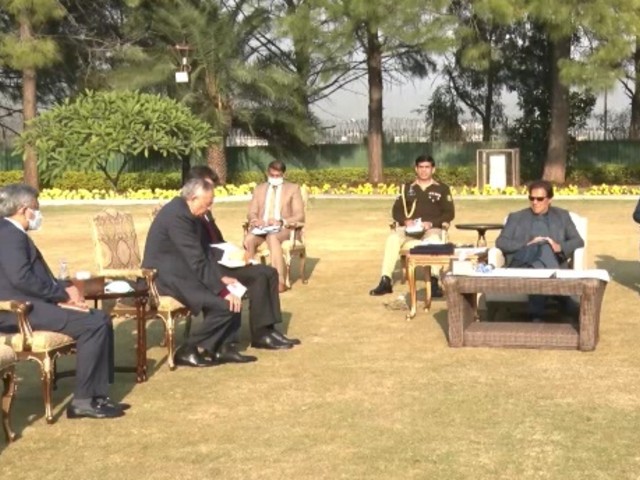
Regional connectivity will remain a pipe dream unless peace and stability prevail in war-torn Afghanistan.
This was the crux of a webinar titled ‘Afghanistan-Pakistan-Central Asian Connectivity’ organised on Thursday by the Institute of Policy Studies (IPS) in collaboration with the Department of International Relations of the Federal Urdu University of Arts, Science and Technology (FUUAST).
IPS Vice Chairman Ambassador (retd) Syed Abrar Hussain was the keynote speaker at the webinar, while the session was chaired by Vice-Chancellor FUUAST Dr Rubeena Mushtaq.
Ambassador Hussain in his presentation said he believed that over the years successive Afghan governments had created hurdle one after the other in stopping Pakistan from developing direct road links with Central Asian states; even though the whole region, not just Pakistan, will benefit from regional connectivity.
He lamented that Pakistan even persuaded Tajikistan to join the Afghanistan-Pakistan Transit Trade Agreement (APTTA) to extend linkages. However, Kabul, which is under India’s influence, created hurdles to stop this from happening, he said.
President Ashraf Ghani rejected the proposed idea of a tripartite agreement and, to complicate matters further, insisted on letting Afghanistan trade directly with India via Wagah in a quid pro quo, he said, adding that for this reason, Pakistan was wary of Afghanistan.
He advised the government in Kabul that it should overcome violence within its borders. He also advised the Afghan government to think about its own interests and be a willing participant in the Quadrilateral Traffic in Transit Agreement (QTTA) signed in 2017 with China, Kyrgyzstan and Kazakhstan.
Ambassador Hussain said in his opinion it was the instability in Afghanistan that was a hurdle in the way of any inter-regional connectivity initiatives, whether it is the Central Asia-South Asia power project (CASA-1000) or the Turkmenistan-Afghanistan-Pakistan-India (TAPI) pipeline project. These projects are far from completion due to political instability in Afghanistan, he stated.
Pakistan, he added, had taken several measures to strengthen land connectivity with Afghanistan, including building a highway from Torkham to Jalalabad. Furthermore, Islamabad was keen to extend railway links to Kandahar from Chaman and build a motorway connecting Peshawar to Kabul, Hussain said.
The event was also addressed by Dr Asghar Dashti, HoD, IR department at FUUAST and Dr Faisal Javaid, assistant professor, IR department, FUUAST.
Published in The Express Tribune, April 2nd, 2021.




1732256278-0/ellen-(1)1732256278-0-165x106.webp)
1725877703-0/Tribune-Pic-(5)1725877703-0-165x106.webp)
1726722687-0/Express-Tribune-Web-(9)1726722687-0-270x192.webp)











COMMENTS
Comments are moderated and generally will be posted if they are on-topic and not abusive.
For more information, please see our Comments FAQ